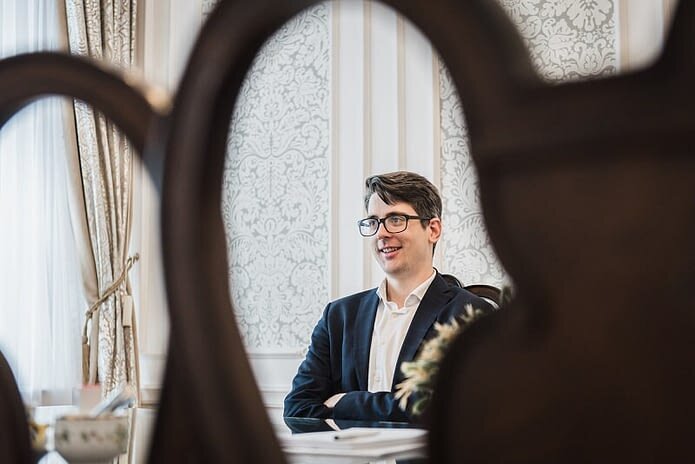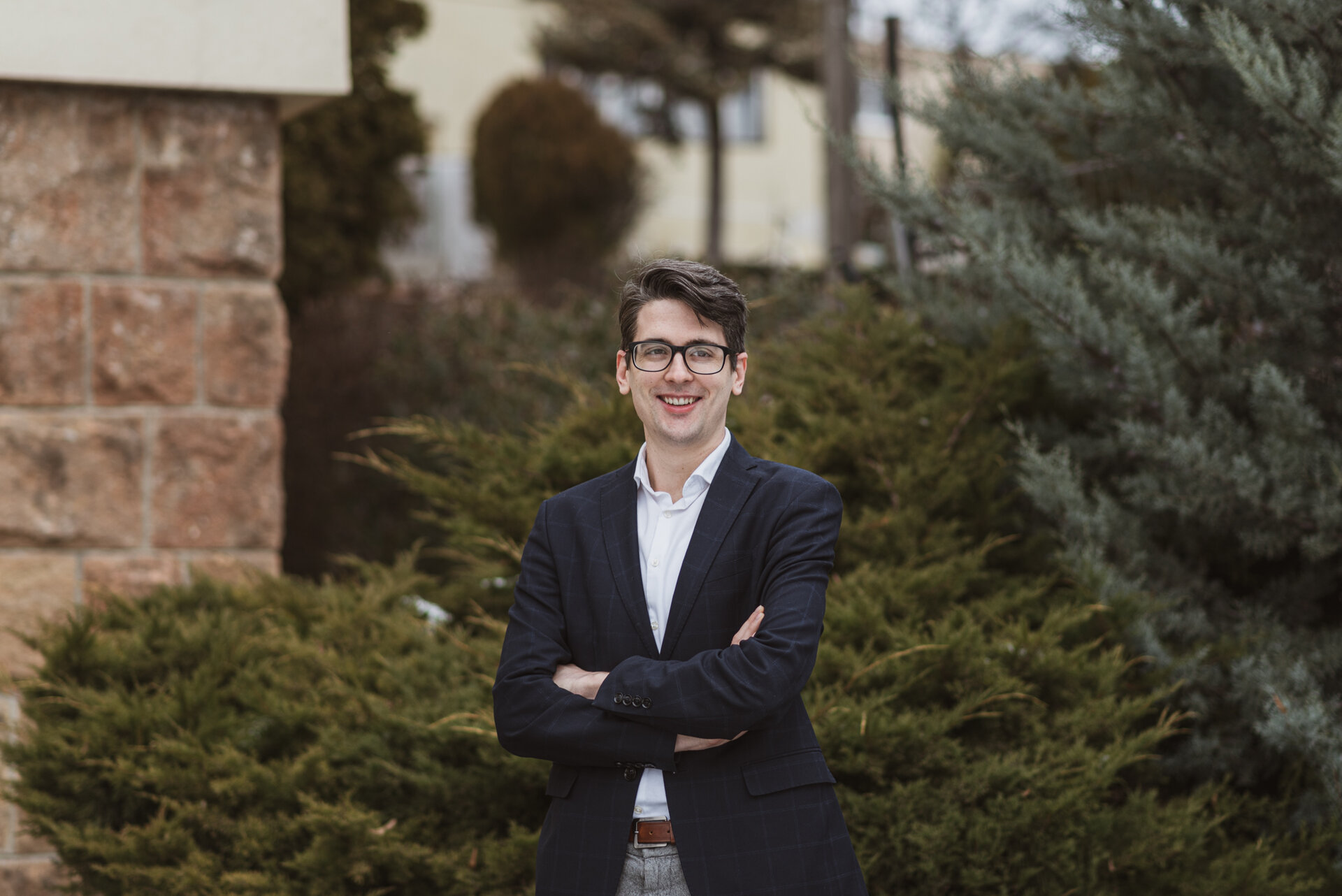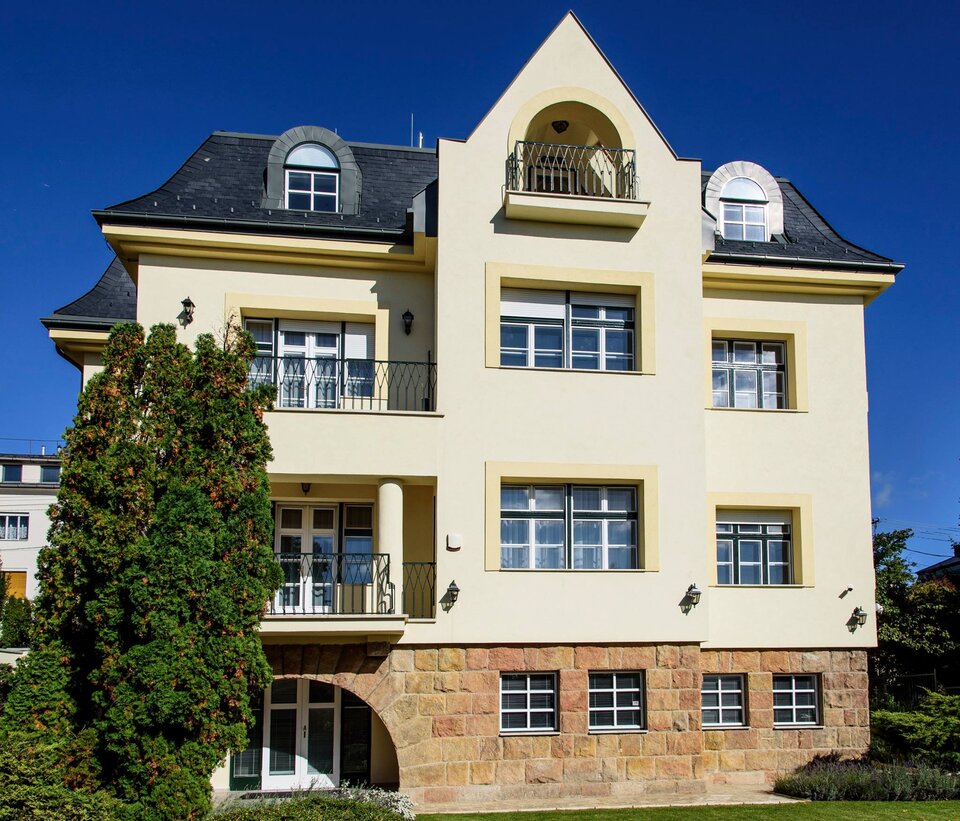"Meet ECSL Members" Series: Tamás Darvas, Junior Associate at Sárhegyi & Partners
Read our "Meet ECSL Members'" series' latest interview of Tamás Darvas.
Tamás joined the ECSL just recently at the beginning of 2021 as a delegate member, as Sárhegyi & Partners is an ECSL Institutional Member.
Read about his passion for space law and his experience as a Junior Associate, as well as his interest in international law and mooting.

1. Hi Tamás, how are you doing? How has it been for you since the COVID-19 outbreak?
Thank God my family and I are safe and sound. From a professional perspective, our law firm, Sárhegyi & Partners, quickly switched to remote working back in March 2020. Although we have managed to run smoothly since then, I really miss working with my colleagues and doing business in person.
2. Can you briefly introduce yourself in a few words?
I am Tamás Darvas, a junior associate at Sárhegyi & Partners, which is an independent law firm in Budapest, Hungary. Before joining Sárhegyi & Partners I worked at international law firms. I am specialized in space law and also in the law of capital markets, investments and investment funds. I am furthermore a researcher at the Outer Space and Social Sciences Research Group at the University of National Public Service in Hungary.
3. Please describe your educational background?
I graduated from the Faculty of Law from the Eötvös Loránd University in 2018. After graduating, I started working as a junior associate at the Finance, Projects and Restructuring practice group of an international law firm in Hungary. I am very proud of participating in the 2017 Jessup International Law Moot Court Competition in Washington D.C. as a student. Our team managed to advance to the “knockout stage” of the top 32 teams, and finished at the 10th place in the overall rankings.
4. Why did you decide to study law?
For me, this was not a straightforward or clear choice at all, as there are no lawyers in my family. I chose law mainly because I was an English-History major in high school and I was more interested in the humanities. My math teacher once asked me if I wanted to become a lawyer, as I often debated on everything he used to say in class. I suspect that this too subconsciously motivated me to choose this direction. At university, I felt I had made the right decision.
5. What is your current position and what do you do on a day to day basis?
I am a junior associate at Sárhegyi & Partners law firm. One of our practice areas is air and space law. We work together with the international and Hungarian space industry ecosystem (companies, governmental entities, such as the Hungarian Space Office, and many others).
This is currently a very exciting area and time in Hungary. Hungary joined the European Space Agency (ESA) in 2015. Previously, Hungary had many great achievements in the decades of the so called “space era” of the 20th century and can take advantage of this space heritage now in light of the new space race. One example of Hungary’s achievements: It was the 7th country in the world to send an astronaut to space.
Therefore, my job on a day-to-day basis is to provide legal support to various entities participating in European (through ESA) and Hungarian space projects. Investment funds and capital markets also take up a significant proportion of my time.
6. For someone who is not aware of how working at a law firm might look like, could you explain how a normal day at work would normally look like for you?
Due to COVID-19 our law firm switched to tele-working in early 2020 but law firm associates can easily do most of their tasks from home.
At work, I spend most of my time either negotiating or drafting commercial agreements or talking to my clients on the phone or at meetings (mostly held online) where I provide them with advice on legal and regulatory matters. You may also find me updating them on their cases, or discussing cases with fellow lawyers and colleagues. I don’t think space law is a whole other “genre” for lawyers, it is a very interesting and challenging specialised field.
7. What drew you to space law?
I found the world of space and science interesting early on in my life. The stories of Isaac Asimov fascinated me at a very young age. Carl Sagan’s book, “The Demon-Haunted World” was a life-changing experience for me. Yet, it was not until 2019 that I was offered to work on space law projects. With this background it was not hard for me to say yes.
8. Is there a specific area within space law or policy that personally interests you the most?
As a member of the Outer Space and Social Sciences Research Group in Hungary, my specific field of research is space law and commercialization. The development of the private sector and the tendencies of commercialization effect the very foundations of space law. We will see drastic changes in the principles and the theories of space law. I plan to look into these foundations very closely in the near future.
9. In as few words as possible, what does space law personally mean to you?
To me, space law is reality in its essence. Space law is neither science fiction, nor is it the distant voice of the future. Space law helps us see the very real challenges of our times more clearly.
One of the pioneers of space law, Hungarian space lawyer Gyula Gál – quoting 19th century writer Imre Madách – pointed out in one of his works that at the turn of the millennium, humanity had already achieved many things that once were considered to be impossible. But we also had to face our limits. Space law helps society face this reality and evaluate how things are, and how things should be. Thinking about space will become normal in the future and this is a great opportunity for development in many fields.
10. You have previously taken part in the Jessup Moot Court, how was your mooting experience?
The Jessup Moot Court was one of the best things that could have happened to me during my university years. As I already mentioned, we finished at the 10th place in the overall rankings.
The “Jessup experience” and the great professors that coached us (Gábor Kajtár and Katalin Sulyok) taught us not only international law, but also about being humble and working hard to achieve your goals. I would absolutely recommend it for those who are interested in international law.
11. What is your relationship with the ECSL?
For me, the ECSL is a totally new thing, as I joined this year. I am really looking forward to getting involved and explore what ECSL does and how we can support each other professionally.
12. Is there anything in particular that you would like to see the ECSL do in the future?
As far as I can tell, the ECSL has a lot to offer for its members and therefore there is a wide range of opportunities. New professional relationships, workshops, events and international-interdisciplinary working groups would all be great opportunities and would also help new members, such as myself, to get even more involved.
13. What is something you personally wish to achieve during your ECSL membership?
Besides my motivation for developing professional networks, I wish to learn as much as possible. I honestly hope that I will also have something new to tell fellow members in the academic field of space law.
14. Who do you want us to interview next?
How about a university professor?



